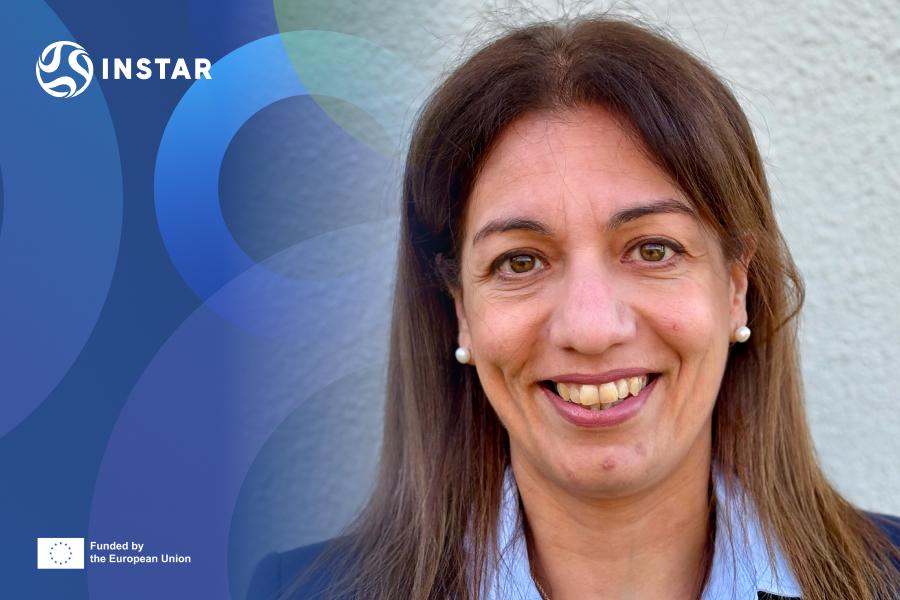Achieving gender equality in all aspects of life is crucial, even in Standards. Diversity and inclusion are key elements for the development of standards, because they help create a world where everyone is represented regardless of race, or gender. According to ISO’s gender equality survey from 2020, men’s participation in standardisation is twice as high as women’s. Other studies show that women are severely under-represented in technological fields— just 17% of IT specialists in Europe are female, and only 19% of European ICT entrepreneurs are women.
Standards are fundamental to the realisation of gender inclusion in technology and innovation. More diverse teams can help create products and services that are better suited to the needs of every user, and research and data that include women can help designers better understand their needs and experiences. Women’s involvement and active participation is an indispensable ingredient for shaping standards and standardisation.
On the occasion of International Women’s Day 2024, INSTAR has reached out to Tanya Suarez, Project Coordinator and CEO of BluSpecs, with some questions about her experiences in the ICT standardisation sector and on how we can, now more than ever, Invest in Women.
Because of its international and cross-technology scope, INSTAR is the perfect example of the importance of the 2024 International Women’s Day #InvestInWomen. In your opinion, how can INSTAR contribute to shape an inclusive future?
Contrary to popular perception, standards are not gender neutral. Technologies can present inherent biases, either in the way they are designed – think of the earliest seatbelts that were not suitable for women and children – or developed – think of AI models that are trained on narrow subjects. Voice recognition systems are a case in point: systems have been shown to perform better for male voices compared to female voices. Standards pave the way for mass adoption of technologies. Ensuring diversity in how they are developed helps to eliminate biases at an early stage.
As coordinator of INSTAR, how do you believe your role empowers other women in the field of ICT standardisation?
I am not sure that my role is empowering other women as such, but as in any other domain, an image is worth a thousand words and having an INSTAR team that includes thought leaders in the standardisation arena such as Rute Sofia, Industrial IoT Head at FORTISS, and Silvana Muscella, Founder and CEO of Trust-IT Services, showcases a community that is more representative of the wider tech ecosystem and the role talented women like Rute and Silvana play in it.
In your opinion, what additional initiatives or programs would be necessary to support and promote women’s inclusion and contribution in international standardisation in emerging tech fields such as AI, Cybersecurity, Digital ID, Quantum, IoT, 5G, 6G, and Data?
Women and men need to be part of the conversation. And it is not just about the conversation. Actions such as making a real effort to engage with expert women (there are many!) in these advanced technology fields. In AI, I know many brilliant researchers including Denia Kanellopoulou, Innovation Director of the Intelligent Information Systems Division at the Institute of Informatics and Telecommunications of NCSR Demokritos, or founders such as Ilana Wisby, CEO of Oxford Quantum Circuits (OQC), or Vanesa Diaz, CEO at LuxQuanta.
Of course, there are women that have been part of the conversation all along: Natalie Samovich, co-founder of Enercoutim, who brings the voice of Energy to IoT standardisation, or Aikaterini Poustourli, a CEN CELENEC standardisation expert, and of course the indomitable Elena Santiago, Director General at CEN CELENEC and Vice President at Women4Cyber, and Andreea Gulacsi, Director Policy and External Affairs at CEN CELENEC. Together, we can all work for technology standards that are unbiased and inclusive.
In light of the theme of the International Women’s Day, how can young women in the ICT standardisation sector contribute to the goal of INSTAR?
I am a great believer in the power of both in person events and webinars, as INSTAR will be hosting many, and we would be happy to hear from and engage with women experts that can join the Task Forces and become panellists on our community-facing activities. Stay tuned!
If you are a standardisation expert or a standards practitioner in the key technologies (AI, Cybersecurity, Digital ID, Quantum, IoT, 5G, 6G, and Data) in Europe, find out how you can contribute to the next generation of Technology standards by joining our community today!
